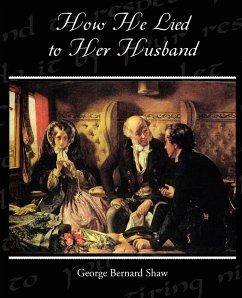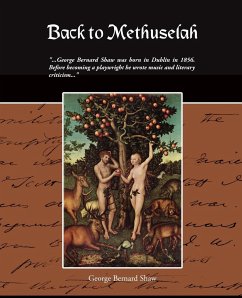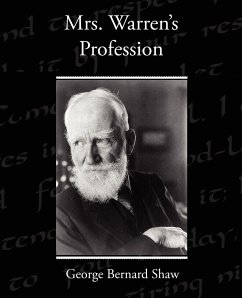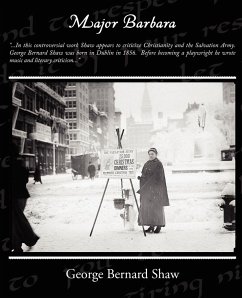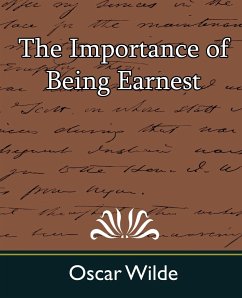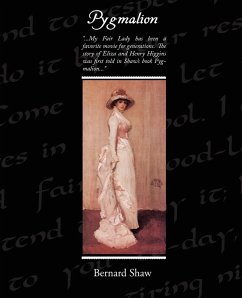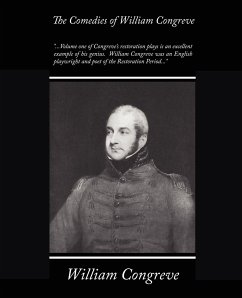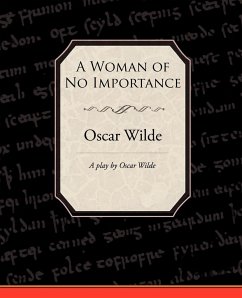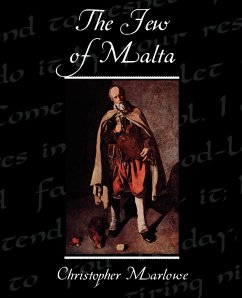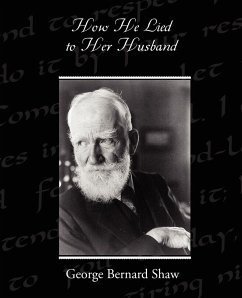
How He Lied to Her Husband
Versandkostenfrei!
Versandfertig in 1-2 Wochen
14,99 €
inkl. MwSt.
Weitere Ausgaben:

PAYBACK Punkte
7 °P sammeln!
George Bernard Shaw was born in Dublin in 1856. Before becoming a playwright he wrote music and literary criticism. Shaw used his writing to attack social problems such as education, marriage, religion, government, health care, and class privilege. Shaw was particularly conscious of the exploitation of the working class. How He Lied to Her Husband is a one act play set in an English drawing room. The characters are Henry, a beautiful young man, a middle aged woman, and her husband, Teddy. Aurora is distressed because poems written by Henry, her lover, are gone. When her husband confronts the t...
George Bernard Shaw was born in Dublin in 1856. Before becoming a playwright he wrote music and literary criticism. Shaw used his writing to attack social problems such as education, marriage, religion, government, health care, and class privilege. Shaw was particularly conscious of the exploitation of the working class. How He Lied to Her Husband is a one act play set in an English drawing room. The characters are Henry, a beautiful young man, a middle aged woman, and her husband, Teddy. Aurora is distressed because poems written by Henry, her lover, are gone. When her husband confronts the two, young Henry tries to convince him the poems were inspired by the goddess Aurora and not Aurora the woman. At the end of the play Teddy wants the poems published as a tribute to his wife. "What shall we call the volume?," Teddy asks. "To Aurora, or something like that, eh?," to which Henry replies, "I should call it How He Lied to Her Husband."





